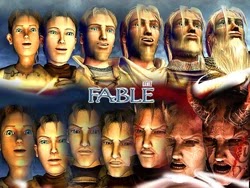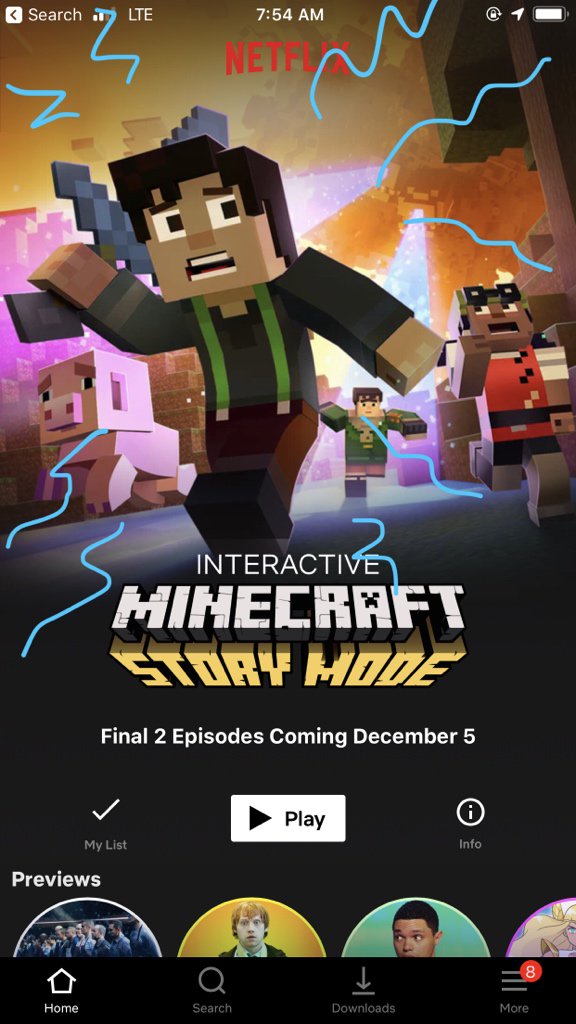Recently I have been re-playing Fallout 4 a lot and watching several guides on choices that have to be made. A common conclusion I hear in these videos is something along the lines of "it depends on what you are role playing as". That's the thing though, I don't really do strict role play, I am a completionist and try to do as much as possible in a game. This makes me think back to a lot of games that forced me to make choices I did not really want to make and wonder if they truly benefit from having them. Click "read more" for my thoughts.
Let me start off by saying that I have nothing against role playing and understand why people who enjoy it would appreciate having this option. Take this article as nothing more than my personal opinion, because that is all it is. Spoilers Warning!
Why There Cannot be a "Best" Ending to have Choices
Going back to Fallout 4 as an example, while not to spoil too much, there reaches a point where the game forces you to pick sides with factions that all want you to kill each other. While there is one option to minimize how much killing you have to do, I wondered why there was no peaceful ending where you make everyone happy. Then it hit me, there cannot be because then all the other endings become wrong. What I mean is, besides roleplaying reasons, it would not make sense to take any ending besides this peaceful one because it would grant you the most gameplay pre/post ending.
When there is a best or true ending, the choices in the game are not really choices but more like tests. Using the Persona games as an example; while there are technically multiple endings, every game has a "true" ending that is both canon and offers the player the most in terms of gameplay and content while the other endings just feel like cutting the story short on a sour note.
 |
| Bad |
 |
| True |
In order to let a player feel like they truly have a choice no ending can be treated as "better" or "worse" and that does affect the story telling quality because it puts a huge limit on the consequences of your choice. Consequences are what defines a choice as a true choice.
That being said, games that go simple, a moral choice system of good or evil, are a little different. Take the Fable games; these games do have a good and evil option but they tell a story that does not really care which path you take. The end goal is pretty much the same for both the good an evil protagonist. You can decide yourself the quality of said storytelling.

Another example of this are the Infamous games. The general end goal is the same, the only difference is the path you choose to get their. Infamous 2 has two drastically different endings, the other 2 games have mostly the same ending but with a difference in public opinion for the protagonist. While I do not think this mechanic really hurts the games, they do not really benefit them either. It could have just had a linear sequence of events and depict the civilians as being torn on whether or not they support or hate you like most civilizations are. Also, a neutral ending would have been appreciated; limited choice is not much different than none at all.
When Choices Have Little to No Impact
Another example to look at are games that technically have choices that barely effect the main story. I remember, Dragon Age 2 was a decent example of that. Almost every interaction has a selection of responses and they have consequences. Each choice effects how NPC's like/dislike you and how many of them you have to end up killing. However, nothing you do can prevent any major story events from happening. No matter what you do, you cannot save Mother, the minors will be attacked by a Dragon regardless of how much time/money you spend on them, and you will eventually be known as the Champion.
This game has 2 sides for you to choose from and the bulk of the game is spent showing how both sides have valid reasons. However, no matter which side you help win you still end up having to kill the leaders of both and end up fleeing the city, either alone or with your love interest.
Here is an example of when choices do technically matter, but do not affect the overall series of events. In this case I would say that for the most part the choices do not hurt the story telling because the plot twists are still in tact, but I wonder if the game really benefits from having them. I can appreciate multiple endings, but the only other major consequence of these choices are deciding whether or not a select few NPCs survive and most NPCs are not too bothered by your choices because the story needs to progress.
Now, to tackle what I know is an unpopular opinion, the Choose Your Adventure type games like The Walking Dead or Minecraft Story Mode. I personally hate these types of choices because most of the options are practically meaningless. The go too consequence is deciding who lives between two people. However, the two of them will almost mirror each other in their future roles which means it really did not matter who you saved beyond personal reasons. I hesitate to even call these "games" because the choices and moving from point A to point B are the only things the player is needed for. Being that these games can work on Netflix is proof enough for that.
At this point the game needs to have choices because that is all the game is. A lot of people seem to enjoy this type of game so I cannot say it is not a good idea. However, someone would have to go above and beyond to make the choices really matter; as in creating drastically different events/stories based on the choices made.
When Choices Are Only Consequences
My personal favorite way that choices are implemented. Rather than just pausing the game to have you make a selection from a menu, these are less choices and more of a performance review. There is a little known PS2 game called R.A.D. ( Robot Alchemic Drive) which is one I am quite fond of. To overly summarize the story, you play someone who takes control of giant humanoid robots in order to fight off giant metal alien invaders. In this case, the ending and supporting characters stories can vary based on how you perform in the game. For example, you have struggling friend that can end up doing thriving if you avoid destroying her place of residence or employment, or committing suicide if you constantly destroy them and several in-between outcomes. She even has a purpose in the story, giving a face to the tragedy that civilians are going through. There are several other characters who situation as well as relationship with the play will also vary based on the players destruction or prevention of destruction in the city.

A simple example, but a good case of how actions have consequences can actually benefit storytelling.
Final Thoughts
While I do not believe that choices hurt a games story by nature, I think it does happen more times than not. It was a lot easier for me to remember choices I either did not like making or felt like they had correct answers than it was to remember any games I think would have been losing something without choices. I know this may sound cynical, but I actually really do like the concept of having choices in video games. RPGs keep forcing me to do things I regret, but I still keep playing them because I love the general mechanics. Ultimately, this is truly a case by case debate. Everyone likes different things and for people who really like to roleplay than having some sort of choice mechanic is a must. In the end, I guess it is our own choice to play these games so they must be doing something right.








No comments:
Post a Comment